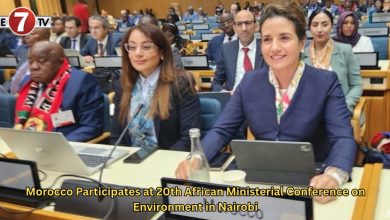Spain: Morocco Takes Part in 123rd session of UN Tourism Executive Council
Madrid - Morocco, represented by the Minister of Tourism, Handicrafts and Social Economy, Fatim-Zahra Ammor, took part in the 123rd session of the Executive Council of the United Nations Tourism Organization (UN Tourism), held in Segovia, central Spain.


Ammor was accompanied by Morocco’s Ambassador to Spain, Karima Benyaich, at this session, which gathered tourism ministers and senior officials from member states of the organization to discuss the future of the sector, the Ministry said in a press release.
This session held particular significance as it was marked by the election of the new Secretary-General of UN Tourism for the 2026–2029 term—a key decision in guiding the organization amid global challenges, the press release added.
The Executive Council reviewed candidacies submitted by the United Arab Emirates, Ghana, Mexico, and Greece. Following the vote, Shaikha Al Nowais from the United Arab Emirates was elected Secretary-General, becoming the first woman to lead the organization since its creation.
Other agenda items focused on promoting sustainable and innovative tourism, particularly in the context of the climate emergency, as well as the development of rural tourism and investment in the sector.
This 123rd session was also marked by the formal adoption by the Executive Council of the decision to establish the Thematic Office for Africa in Morocco. This was first made concrete through the signing of the headquarters agreement between the Moroccan government and UN Tourism in January 2025, and later through the financial agreement signed on the sidelines of this session, according to the same source.
Speaking during the session, Ammor highlighted the exceptional momentum of Moroccan tourism and called for strengthening the role of UN Tourism, especially in Africa. She also welcomed the sector’s global performance, particularly in Africa, which recorded a 7% increase in 2024 compared to 2019.
She further praised the central role of UN Tourism in promoting sustainable, responsible, and inclusive tourism, urging the reinforcement of the organization’s capacities to meet the growing expectations of member states, particularly on the African continent.








